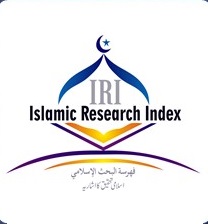Divine Objectives and Decentralized Power: Islamic Thought, Postmodernism, and the Future of Global Ethics
DOI:
https://doi.org/10.58932/MULF0042Keywords:
Postmodernism, Islamic thought, Maqasid al-Shariah, technology ethics, social justice, sustainability, global governance, interdisciplinary dialogueAbstract
This article examines the underexplored intersections between postmodernism and Islamic thought, arguing that Maqasid al-Shariah (objectives of Islamic law) offers a robust ethical framework to address postmodernism’s normative gaps in confronting global challenges. While postmodern critiques deconstruct power hierarchies in technology, justice, and sustainability, exposing algorithmic bias, systemic oppression, and ecological exploitation, their relativistic foundations often lack actionable solutions. Conversely, Islamic thought, grounded in divine revelation, provides prescriptive principles such as Adl (justice), Mizan (balance), and Khilafah (stewardship). Through comparative analysis and case studies including Malaysia’s Shariah-compliant AI governance, Islamic Relief’s refugee programs, and Indonesia’s ecological fatwas this study demonstrates how these paradigms synergize postmodern pluralism and revitalize Islamic Ijtihad (independent reasoning), while Maqasid al-Shariah stabilizes postmodern ethics with universal norms. The findings suggest a post-secular interdisciplinary dialogue, proposing policy models that integrate Maqasid principles into global governance frameworks like the Sustainable Development Goals (SDGs). By bridging critical theory and theological ethics, this work redefines global problem-solving, balancing moral clarity with inclusive pluralism.
References
Abdurrahim, A. (2023). The contribution of Mohammad Natsir's thoughts in the formation of the Unitary State of The Republic of Indonesia (NKRI) perspective of religious moderation da'wah. Jurnal Syntax Transformation, 4(10), 10-27.
Al-Ghazali. (1999). The revival of the religious sciences (Ihya’ ‘Ulum al-Din). Translated by Nabih Amin Faris. Muhammad Ashraf Publishers.
Al-Qur'an. Al-Baqarah (2:275).
Al-Qur'an. At-Tawbah (9:60).
Al-Rodhan, N. R. (2022). On power: Neurophilosophical foundations and policy implications. Vernon Press.
Ali, H. (2024). Nader Hashemi on Islam, secularism, and liberal democracy: A philosophical and genealogical critique. University of Karachi.
Ali, S. M. (2024). Muslim, not supermuslim: A critique of Islamicate transhumanism. Religions, 15(8), 975.
Alkouatli, C. T. (2021). Learning to be human together: Education for ecological citizenship. in reimagining education for a new future: UNESCO International Commission on the Futures of Education. Pairs, France: UNESCO.
Banerji, D. (2022). Postmodernism and Sri Aurobindo. In reading Sri Aurobindo: Metaphysics, ethics and spirituality (pp. 137-161). Springer.
Bauman, Z. (1993). Postmodern Ethics. Oxford, UK.
Burchanoski, M. T. (2023). Lifting the postmodern veil: Cosmopolitanism, humanism, and decolonization in global fictions of the 21st century. Marquette University.
Butler, J. (1990). Gender trouble: Feminism and the subversion of identity. Routledge.
De Genova, N. (2017). The borders of "Europe": Autonomy of migration, tactics of bordering. Duke University Press.
DeGrey, A., Bauman, W. A., Cannon, L., Checketts, L., Cole-Turner, R., Deane-Drummond, C., Delio, I., Ferrando, F., Gallaher, B., & Gerle, E. (2022). Religious transhumanism and its critics. Rowman & Littlefield.
Demir, K. A. (2024). Publiclogy Engineering From Conceptual Framework To Utopian Future. Detay Yayıncılık.
Elamin, M. O. I. (2024). Muhammad ibn Musa al-Khwarizmi: The pioneer of algorithms and his enduring legacy in artificial intelligence. Journal of Ecohumanism, 3(8), 10853–10874-10853–10874.
Evans, A. D. (2021). Radical quakerism: a political anthropology of postmodern religion. University of Wales Trinity Saint David.
Fairclough, N. (2003). Analysing discourse: Textual analysis for social research. Routledge.
Floridi, L. (2014). The ethics of information. Oxford University Press.
Foucault, M. (1977). Discipline and punish: The birth of the prison. Alan Sheridan. Pantheon Books.
Fysudeen, F. (2021). Modernity and the (Im) possibility of transcendence: A cognitive map for liberation: from nietzsche and modern binaries to ghazalian noetics
Goff, C. (2021). The historical trajectory of terrorism and legal challenges in the post-modern era. Bond University.
Gökçe, E. U. (2024). A philosophical inquiry into the limits of constructing western-centric international relations theory in Islam. Marife Dini Araştırmalar Dergisi, 24(2), 309-335.
Haraway, D. (2016). Staying with the trouble: Making kin in the Chthulucene. Duke University Press.
Harvey, R., & Tutt, D. (2023). Justice in Islam.
Indonesia., M. U. (2014). Fatwa on the destruction of forests for environmental reasons. MUI.
Islam, J. (2024). Reform and Resurgence: The Transformation of Islamic Movements in the 21st Century. Filozofija i društvo, 35(3), 585-606.
Jacques Derrida, O. G. (1976). Gayatri Chakravorty Spivak Johns. Hopkins University Press.
Jaffer, I. (2018). Traditional Islamic ethics: The concept of spiritual virtue and its implications for contemporary human rights.
Jong, A. (2025). The post-secular cosmopolitanization of religion. Religions, 16(3), 334.
Kabba, Z. (2024). Knowledge, authority, and Islamic education in the west: reconfiguring tradition. Taylor & Francis.
Kellner, D. (2024). Reappraising the postmodern: novelties, mapping and historical narratives. In Postmodernism: What moment? (pp. 102-126). Manchester University Press.
Khaldun, I. (1967). The Muqaddimah: An introduction to history. Translated by Franz Rosenthal. Princeton University Press.
Latour, B. (2004). Politics of nature: How to bring the sciences into democracy. translated by Catherine Porter. Harvard University Press.
Lyotard, J.-F. (1984). The postmodern condition: A report on knowledge. University of Minnesota Press.
Lyotard, J.-F. (1984). The postmodern condition: a report on knowledge. translated by Geoff Bennington and Brian Massumi. University of Minnesota Press.
Masyitoh, S., Sodik, N., Mansurnoor, I. A., Musyaffi, M. A., & Zulkifli, A. (2021). Democracy of Islamic education: Building a monochotomic epistemology in Islamic education. ICIIS 2020: Proceedings of the 3rd International Colloquium on Interdisciplinary Islamic Studies, ICIIS 2020, 20-21 October 2020, Jakarta, Indonesia,
Mills, T. R. (2022). The Rastafari and the nation of Islam: from Black internationalism to globalization, 1960s–1980s. The University of Iowa.
Mohiuddin, A. (n.d.). Navigating religious authority in Muslim societies.
Nasr, S. H. (2003). Man and nature: The spiritual crisis in modern man. ABC International Group.
Özdemir, M. (2024). Possible risks of the Metaverse and the Posthuman: The separation of the economy and the money. Cihannüma Sosyal Bilimler Akademi Dergisi, 3(1), 10-29.
Qur'an, A. Al-A‘raf(7:33)
Qur'an, A. Al-A’raf (7:56).
Qur'an, A. Al-Hujurat (49:13).
Qur'an, A. Ar-Rum (30:30).
Qur'an, A. An-Nahl(16:36)
Qur'an, A. An-Nisa’(4:58)
Rafiqi, I. D. (2021). Criticisms toward the job creation bill and ethical reconstruction of legislators based on prophetic values. Legality: Jurnal Ilmiah Hukum, 29(1), 144-160.
Ramadan, T. (2009). Radical Reform: Islamic Ethics and Liberation. Oxford University Press.
Ramaioli, F. L., & Ramaioli, F. L. (2023). Juridical perspectives between Islam and the West: A tale of two worlds. Springer.
Saeed, A. (2018). Reading the Qur’an in the twenty-first century. Routledge.
Sani, L. (2022). When the secular meets the sacred: Islamic peace model for post-COVID Muslim-majority war-torn contexts. The International Journal of Religion and Spirituality in Society, 12(2), 15.
Shaukat, M. A., Samra, U., Hassan, J., Saadi, C., & Hayat, I. (2024). Morality from classical civilizations to post-modern era: A historical account through Islamic lens. Journal of Islamic Thought and Civilization, 14(2), 321-335.
Smith, T. L. (2024). The shared values society: on the inability to validate beliefs and its effect on pluralistic governance. Liberty University.
Sözer, S. (2015). Against the modern world: A different ontological, ethical, epistemological and esthetical overview on sufism and sects. Journal of Modern Education Review, 2(4) 2155-7993.
Tilly, C. (1984). Big structures, large processes, huge comparisons. Russell Sage Foundation.
Wang, C., Jackson, L., Tsang, K. K., Evers, C., Zhao, W., Turner, D. A., Ma, L., Green, B., Liu, B., & Chiang, T.-H. (2023). Scholarly responses to “who leads, who follows?”. Beijing International Review of Education, 5(1-2), 51-91.
Yazdani, N., Abbas, R. Z., & Hameed, K. (2021). Quantum organizations with Islamic way forward. Journal of Management and Research, 8(1), 23-49.
Youvan, D. C. (2025). Pain and awakening: how suffering has shaped spiritual, cultural, and intellectual revolutions throughout history.
Zuboff, S. (2019). The age of surveillance capitalism: The fight for a human future at the new frontier of power. Public Affairs.
Downloads
Published
How to Cite
Issue
Section
License
Copyright (c) 2025 South Asian Journal of Religion and Philosophy (SAJRP)

This work is licensed under a Creative Commons Attribution-NonCommercial 4.0 International License.









